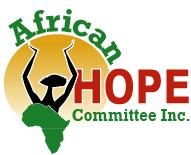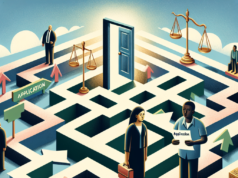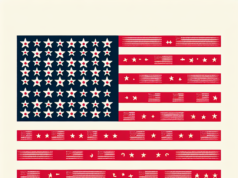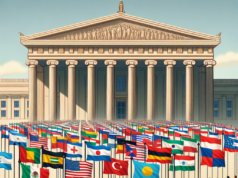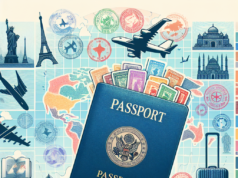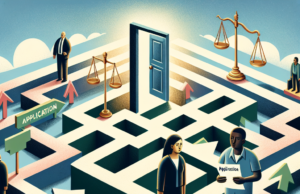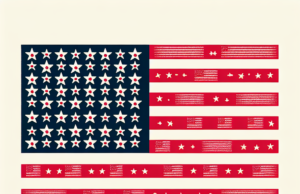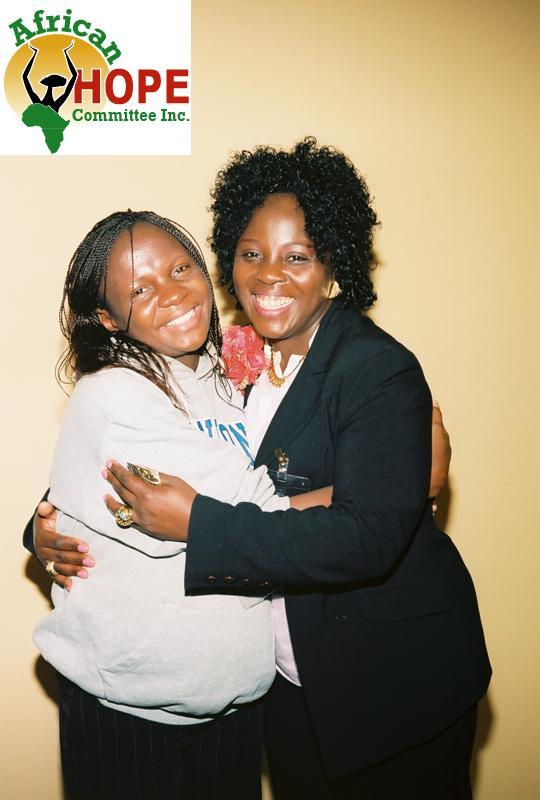
Bringing Hope to Many – The African Hope Committee
Africa is a continent of contrasts, where breathtaking natural beauty coexists with overwhelming poverty and a series of humanitarian crises that challenge many of its nations. Hunger, disease, and conflict are some of the major threats that the African continent faces. To address these problems, governments, non-governmental organizations (NGOs) and other groups from different parts of the world have teamed up to offer their help. One such organization that has made a remarkable impact in Africa is the African Hope Committee (AHC).
The African Hope Committee is a non-profit organization that was founded in 2000 by a group of volunteers from across Africa and the world. The organization was established to provide relief and development assistance to the people of Africa who were affected by poverty, conflict, and disease. The AHC has a unique approach, which involves partnering with other organizations, community leaders, and beneficiaries to execute programs that directly address the needs of the local populations.
The African Hope Committee is headquartered in Kenya but operates in most parts of the African continent. Since its inception, the organization has implemented more than 150 projects, which have made an enormous impact on the lives of the people in Africa. Some of the areas of focus for the AHC include health, education, water and sanitation, food security, and conflict resolution.
Health
One of the main issues affecting the health of many Africans is the high prevalence of infectious diseases. According to the World Health Organization (WHO), HIV/AIDS, malaria, and tuberculosis are the leading causes of death in the African continent. The African Hope Committee has been at the forefront of addressing these health issues, by providing access to healthcare, preventative education, and nutrition.
The AHC has established health clinics in sub-Saharan Africa, where medical personnel and equipment are in short supply. The organization has also set up mobile clinics, which provide basic healthcare in remote areas where people have no access to medical facilities. In addition, the AHC has partnered with other organizations to distribute mosquito nets, which help to prevent the spread of malaria, and to provide antiretroviral treatment (ART) to people living with HIV/AIDS.
Education
Education is a key aspect of development in any society. In Africa, however, there is a significant gap in access to education, particularly for girls. According to the United Nations Development Programme (UNDP), 58 million children in Africa are out of school, with girls accounting for more than half of that number. The African Hope Committee recognizes the importance of education in breaking the cycle of poverty and has implemented several projects to increase access to education.
One of the initiatives launched by the AHC is the Girls Empowered program, which aims to empower young girls in Africa by providing them with the tools they need to succeed. The program provides scholarships, textbooks, and school supplies to girls who would otherwise not be able to afford an education. In addition, the AHC has established community libraries and computer centers in underserved areas to help improve literacy rates and digital literacy skills.
Water and Sanitation
Access to clean water and sanitation remains a significant challenge in many parts of Africa. Lack of clean water and poor sanitation practices have resulted in the spread of waterborne diseases such as cholera, typhoid, and dysentery. These diseases cause significant morbidity and mortality, particularly among children. The AHC recognizes the importance of access to clean water and sanitation facilities and has implemented several projects to address this challenge.
One of the initiatives launched by the AHC is the provision of boreholes and wells in communities without access to clean water. The organization has also constructed latrines and provided hygiene education to promote good sanitation practices.
Food Security
Many African countries still struggle with food insecurity. The African continent has experienced several food crises, with droughts, floods, and conflicts contributing to the problem. The African Hope Committee has been working to address food insecurity by providing food aid, improving agricultural practices, and promoting sustainable agriculture.
One of the major projects spearheaded by the AHC is the promotion of urban agriculture. The organization has established community gardens in several cities throughout Africa, where people can grow fruits and vegetables to supplement their diets. In addition, the AHC has trained farmers in sustainable agriculture practices to help increase crop yields and improve food security.
Conflict Resolution
Conflict and political instability are widespread in many parts of Africa. These issues have a profound impact on the lives of the people in affected areas, resulting in displacement, food insecurity, and poor health outcomes. The African Hope Committee recognizes the need for peace and security as a prerequisite for development and has implemented several programs to promote peace and conflict resolution.
One of the initiatives launched by the AHC is the Peace Education program, which aims to promote peaceful coexistence among different communities. The program provides conflict resolution training and peace education classes to both children and adults. In addition, the AHC has partnered with other organizations to provide trauma counseling to individuals affected by conflict and other forms of violence.
Conclusion
The African Hope Committee has made significant strides in addressing some of the major challenges facing the African continent. The organization has implemented various projects that have made a significant impact on the lives of people in the areas of health, education, water and sanitation, food security, and conflict resolution. By partnering with local communities and other organizations, the AHC has been able to execute effective programs that directly address the needs of the population. The African Hope Committee remains committed to improving the lives of Africans and bringing hope to those who need it the most.
The Senate Judiciary Committee has commenced considering amendments to the 844 page immigration reform bill introduced by the Gang of Eight. It is expected the markups will carry on for the next couple of weeks. 300 amendments have been proposed, and they include efforts by the right to further beef up border security, along with efforts from the left to provide eligibility to apply for a green card for the same-sex partners of American citizens. 300 amendments have been proposed in all.
(More on News at LAWS.com, contact Adam for interviews “adama@laws.com”)
Probably the most ambitious goals of some of the amendments proposed is to dismantle the provisions in the bill that would create a path to citizenship for the 11 million undocumented immigrants in the United States. Most observers, however, have noted that such dramatic changes to the composition of the bill are unlikely to pass, as the bipartisan supporters of the bill are likely to unite to stop any such changes.
Of the 300 amendments put forth, most have come from the GOP – 194 in total. The debate that will take place certainly promises to be engaging.
The bipartisan Gang of Eight senators set out to reform the immigration system in profound ways through this bill. The bill sets to increase border security, expand legal immigration for the coming ten years, and, controversially, create a path to citizenship for the 11 million undocumented immigrants in the United States. It is especially this last provision which has gained the support of many social justice organizations.
The African Hope Committee (AHC) is among the social justice organizations that have supported the path to citizenship proposed. The AHC is a nonprofit organization that provides a network of referral services to immigrants and provides a wealth of information on immigration, health and social welfare. Its mission is to serve as a bridge between mainstream services and newly arrived immigrants.
The following is an interview conducted by laws.com with Clarisse Mefotso of the AHC on her thoughts and feelings about the current immigration reform bill and the work of her organization in the realm of immigrant aid and advocacy.
What are your views on the immigration-reform bill being debated in the Senate?
I support the immigration reform Bill and I hope this bill will pass very soon. African Hope Committee has been very active with advocacy with the hope to pass a comprehensive immigration reform that address immigration issues for different immigrant groups. We hope the President will pass the bill this year.
What are some of the most important changes you would like to see happen to U.S. immigration policy?
Some of the key changes I would like to see to US Immigration policy are 1) increase the number of people with the advance degree so they could continue to provide their skills and expertise as well as increase the US Economy.2) I support the young dreamers to become US Citizen, to expand the differed action bill to citizen and to remove the age gap3) maintaining the DV lottery will keep the balance of immigrants coming from different countries around the world and give the opportunities to immigrants to improve their life status
Some organizations on the other side of the debate argue that undocumented immigrants should not be given amnesty because coming to the country illegally is not a victimless crime. They argue that undocumented immigration is a drain on public funds and harms documented immigrants and Americans by taking away jobs they need, and that charity should begin at home. What is your response to this notion?
America is the land of immigrants and opportunity. Immigrants have built this country and are very hard workers. Having immigrants in this country allow the country to progress and perform the jobs that most people will not do. There are jobs that only immigrants will do in this country, like working in the farms, restaurants, hotels…..and many more. They are willing to do the difficult jobs that no one else will do.
What are some of the biggest accomplishments of the African Hope Committee?
We just received the NYPD Award in March 2012 for serving immigrants in New York City.
AHC IS A BIA recognized organization and work with BIA Accredited Representatives
Through our commitment to advocacy efforts, community organizing and AHC’s Annual Health Summit, we have served more people in the community than we have anticipated in less than 5 years. To date, AHC has received proclamation from the Brooklyn Borough President, Marty Markowitz in 2004, 2006 and 2007; a citation from the Manhattan Borough President, C. Virginia Fields and Council Member Bill Perkins in 2004 and 2005 for recognizing and commending AHC for the vital services we have provided to the residents of the City of New York; an award of recognition from the New York City DOHMH, Bureau of HIV/AIDS/ Women and HIV/AIDS Program, Dr. Marjorie J. Hill in 2004. We have been the 2005 Union Square Awards recipients. In 2007, we received proclamations of praise from both the Manhattan Borough President and the Brooklyn Borough President for the 4th Annual Health Summit for African women/children affected and infected by HIV/AIDS and actions taken to increase HIV awareness and help to bring people to care. Our staff at AHC was very proud to receive two proclamations from Mayor Bloomberg for hosting the 4th and 5th Annual Health Summit entitled “Ignorance can Kill, Knowledge can Save Lives”, which raises awareness about issues related to the treatment and contraction of this horrible illness. We have also received citations from Councilman Robert Jackson and Councilwoman Inez Dickens. In 2010 we received an award from the US Census Bureau for community organizing activities that encouraged the community to participate in the U.S Census 2010.
AHC has had over 80 staff, volunteers, interns, consultants and board members joined in our efforts in the past. Since 2003, African Hope Committee has reached over (14,500) individuals and distributed over (65,000) information education and communication (IEC) materials on legal issues and diseases of public health importance such as HIV&AIDS, Hepatitis B and STD/is. Some of these educational materials can be found posted on our website. AHC has successfully organized six ( 6) Annual Health Summits, over ( 21 ) Community Forums and countless Outreach in the New York Metropolitan Area. Other major accomplishments include raising awareness on HIV&AIDS, organizing enlightenment workshops, conducting ( 3) Focus Group Discussions targeted at women and young girl on health and immigration and ( 3 ) summits for Health Care Providers and Community Members/Participants. Maintained case load of over (122).
What does the African Hope Committee have planned for the future?
Continue to develop and expand our immigration program to assist the large number of immigrants living in NYC. Create a center with a big umbrella that provides a range of services. Engage more in advocacy and policy work.
For more information on the AHC and its work, or to find out how you can help, please visit their site. For more information on immigration laws and news, please visit our Immigration Laws Page.
Interviewed with Clarisse Mefotso of the African Hope Committee, New York, New York
